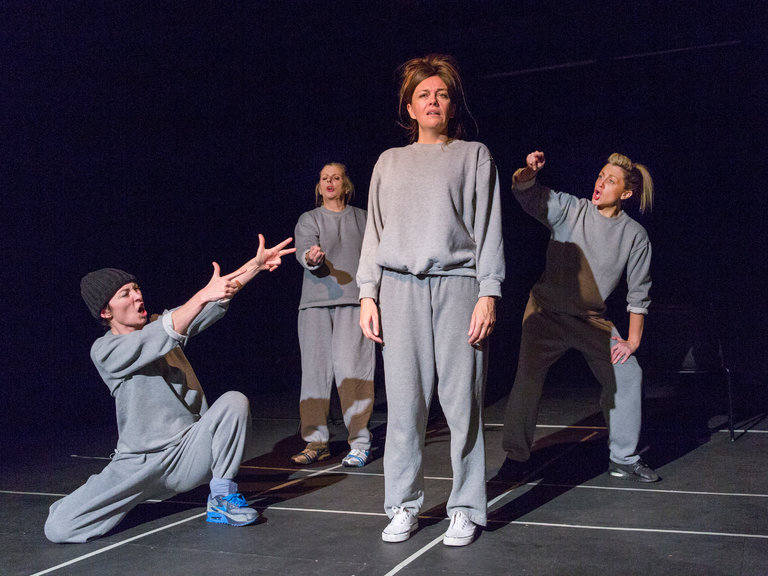Shakespeare leading the way in tackling youth crime
I am now in the second month of my post as Development Officer for the National Criminal Justice Arts Alliance (NCJAA). My work history is richly filled with experiences of arts education, training and using theatre for positive social change but, being new to this role, it is important that I become equally knowledgeable of the criminal justice system (CJS). Therefore, as part of my continued professional development, I have been spending much of my first weeks out and about meeting people and attending events.
One such event was Transforming Criminology – Rethinking Crime in a Changing World, an annual conference produced by the British Society of Criminology and this year held at Birmingham City University. I attended the first day, which offered an abundance of lectures on various topics related to the conference theme. One particular talk, delivered by Diana Johns from the University of Melbourne, particularly grabbed my interest. It was entitled Supporting Transitions from Prison: Recognising Reintegrative Ritual in Everyday Practices. Johns explained that the idea of desistance (ending a life of crime or anti-social behaviour) was unrealistic because the term focuses on offending. Instead she offered the term ‘reintegration’ as a replacement, as it puts the responsibility on the community to help people reintegrate back into society (with housing, jobs, services, etc.).
Johns introduced the idea of ‘Elements of Reintegrative Rituals’, which are significant markers in the journey to reintegration and can be used to measure progress.
She listed them as follows:
- Rhythm (doing something repetitively)
- Acceptance (by others)
- Personal meaning and significance
- Positive identity (as a dad or mum, for example)
- Generativity (giving back)
This got me thinking about how the arts can be a powerful tool to help ‘reintegrate’ and reminded me of my conversations with Intermission Youth Theatre’s Darren Raymond (Artistic Director) and Nana Antwi-Nyanin (Facilitator/Mentor). Intermission use Shakespeare’s work to explore challenges and issues faced by young people. I met both these men at Watts Gallery during Museums and the Criminal Justice System, a seminar the NCJAA co-curated with Watts Gallery to discuss good practice examples of using arts in the CJS, as well as to mark the museum’s 10 years of work with prisons, young offenders and community groups.
Darren and Nana spoke of their journeys to, within and from prison. As I listened, I heard that drama workshops were a regular (Rhythm) feature of their lives. Darren spoke of a key person within the church who encouraged him to set up a theatre company upon his release, and offered him rehearsal space (Acceptance).
Both shared how they connected the themes of Shakespeare’s work to their own lives and how they encourage young people to do the same (Personal meaning and significance). Now they are known as positive arts professionals who use theatre to improve the life chances of young people (Positive identity), many of whom have been in Young Offender Institutions. As a result, hundreds of young people have experienced their work and some have since been employed by mainstream arts organisations such as the Royal Shakespeare Company. Independent research conducted by Dr Maria Evans in February 2018 reports that as a result of Intermission’s work with young people, opportunities have increased within education and employment and there have been reductions in the offending and re-offending rates (Generativity).
If I did not already believe that the arts could change the lives of people in the CJS before I got this role, these experiences alone would have been enough to convince me otherwise. In Darren and Nana’s cases, they both were able to reintegrate back into the community and arts played a major role in that process. I know not everyone will see the benefits as easily but I will continue to collate the evidence, anecdotes and good practice examples to aim to change those points of views.
As I continue this learning journey and immerse myself further into the role, I am keen to continue meeting those who use their art to improve the lives of people who have been, or are at risk of being, imprisoned. If you are such an artist or organisation, please get in touch. Currently my focus is in the West Midlands but if you are from elsewhere I would still like to hear from you. You can reach me at my email address, rebbecca.hemmings@clinks.org
Image courtesy of Intermission Youth Theatre





